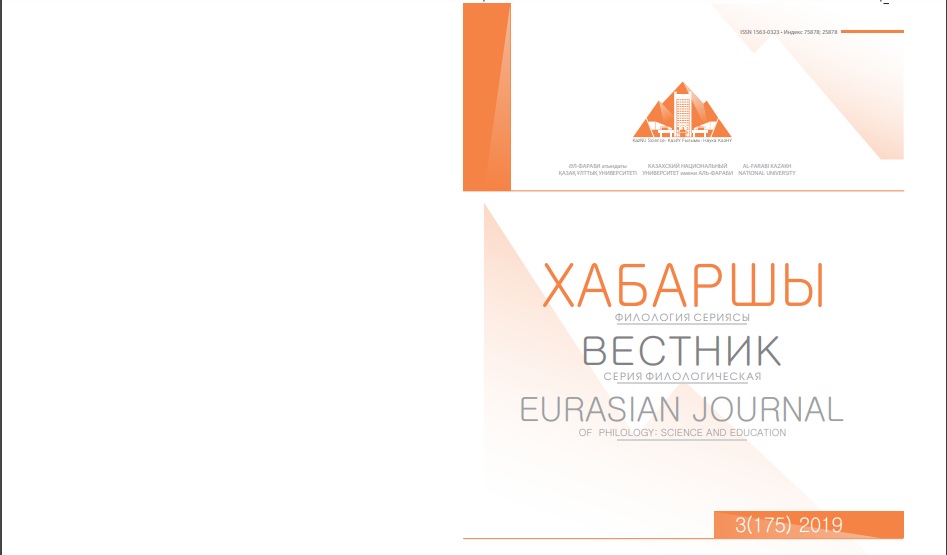British children’s literature and its role in formation of children’s personality
DOI:
https://doi.org/10.26577/EJPh-2019-4-ph9Abstract
The article is dedicated to directions in development of British children’s literary works
and the determination of the role of children’s literature in the upbringing and development of children
as individuals. It is shown that children’s care development in the world and the growing interest in
children’s books in the book market can be considered as one of the key indicators of the development
of children’s literature.
The author of the article emphasizes that the fables, regarded as one of the integral parts of British
children’s literature, are still popular in the literary genre from the time of Aesop to the present. One of
the main criteria for maintaining the specific peculiarity of fable is its incorporating moral and educational elements. On the other hand, the fables have been remarkable, as a rule, by conveying human
characters and life events to the attention of the reader through the language of animals and plants.
At various stages in the history of British children’s literature, the publication of instructive books
was the focus of the country’s publishers. However, in the 18th century children’s literature samples, as
well as in many literary publications, the main goal was to enjoy the children and teach them the behavior and skills that their parents would like to see in their children. In general, the author of the study pays
special attention to the identification of certain elements in British children’s literature, which played a
special role in shaping the personality of the child.
The article also states that in every century, the writers’ words of the time have become a reflection
of the social and political life, and have brighten up children’s life and served their education.
The author of the article identifies the most important facts of literary and artistic descriptions,
literary and critical works on children’s literature related to the work of British writers. At all stages of
its development, children’s literature played an important role in the formation and upbringing of the
personality of the child. Literature, created in the 19th century, in the Victorian period, is estimated by
the researcher as one of the most important and most fruitful stages of British children’s literature. One
of the greatest writers of this period, Charles Dickens, made an invaluable contribution to the development of children’s literature. The researcher identifies those areas of children’s literature that have played
a decisive role in the development of British children’s literature. The author of the article shows this
crucial role of children’s literature, which influenced not only small readers in the Victorian era, but also
readers around the world.






